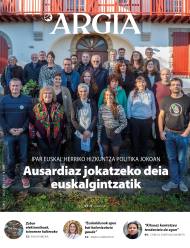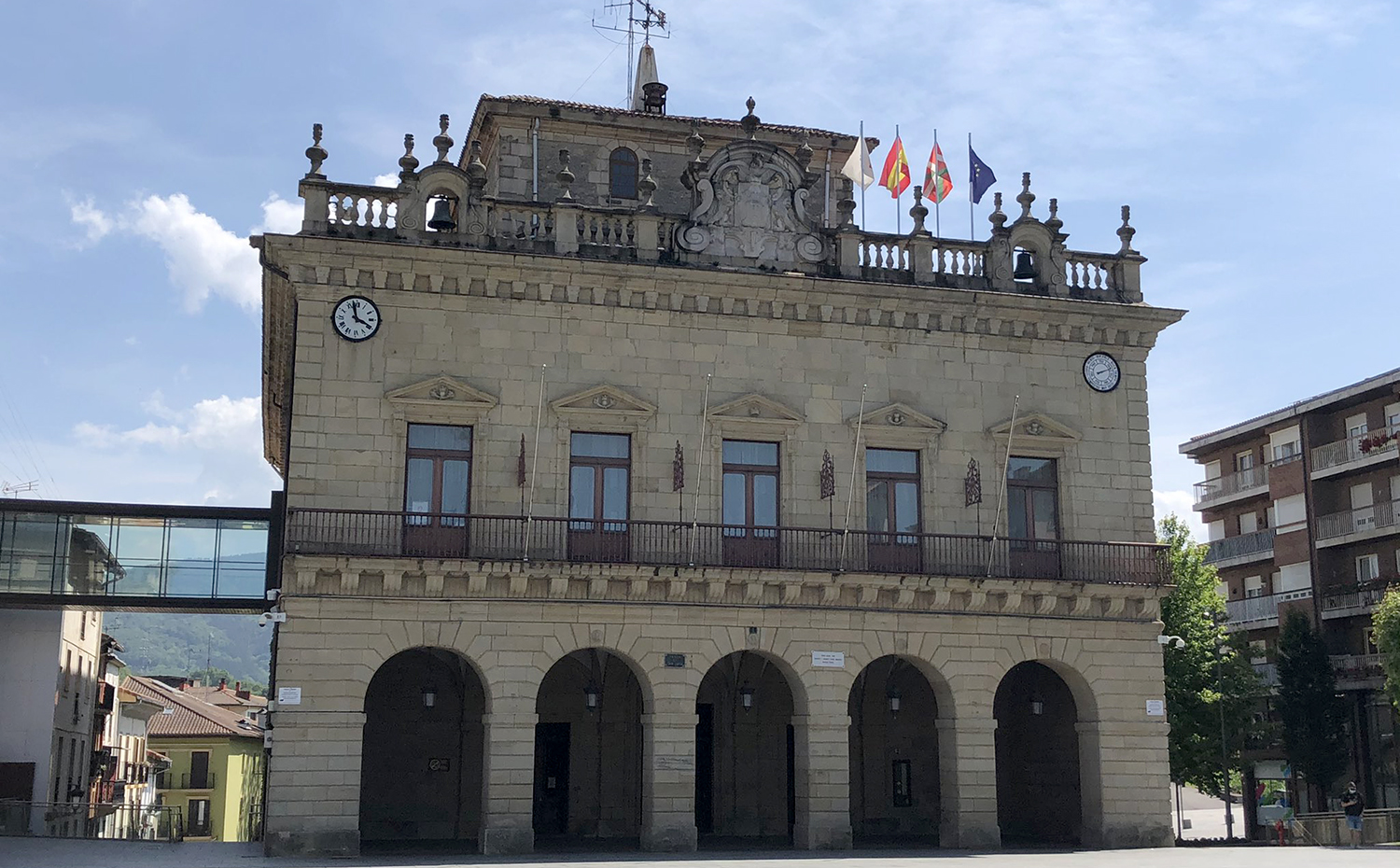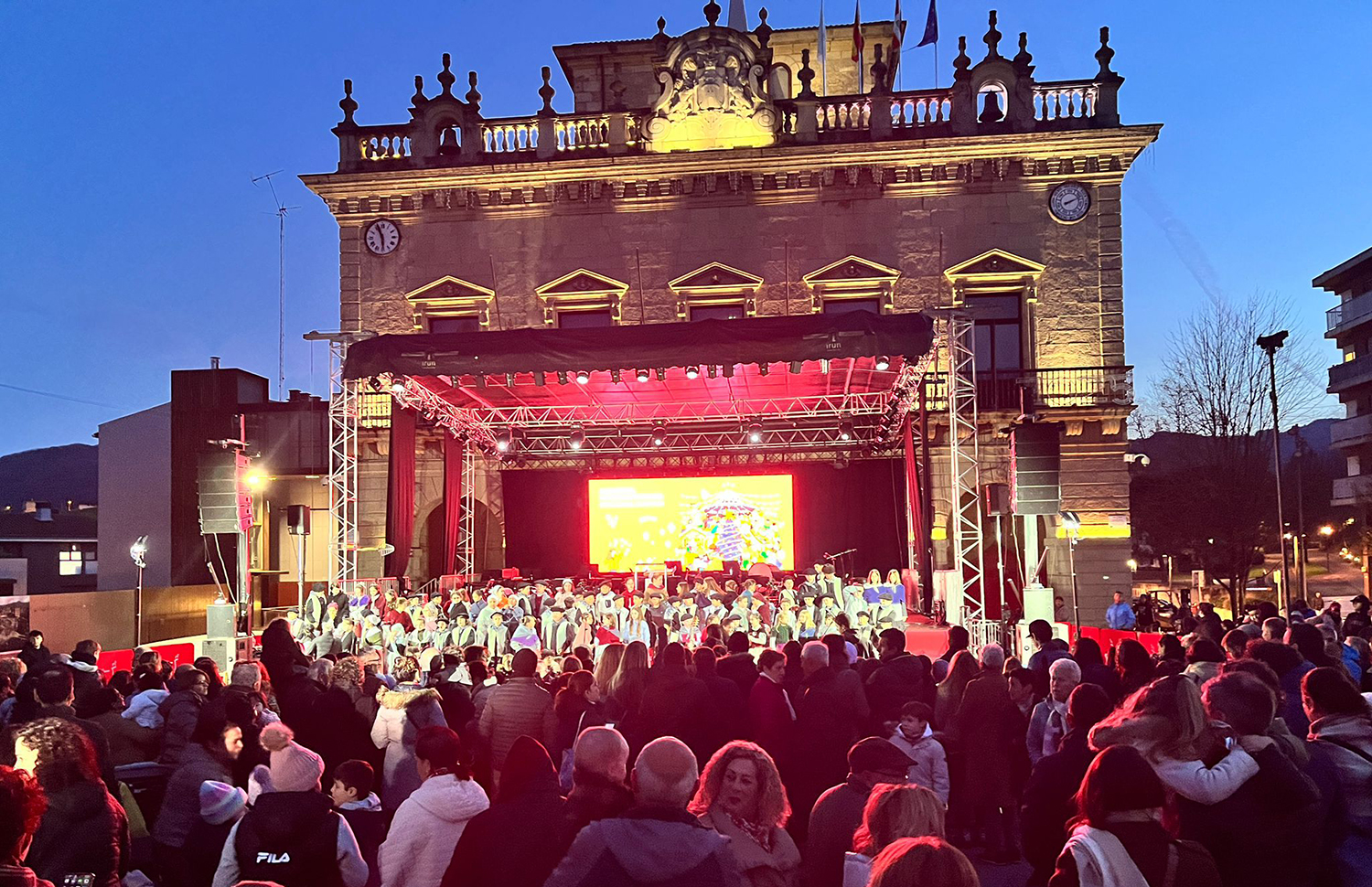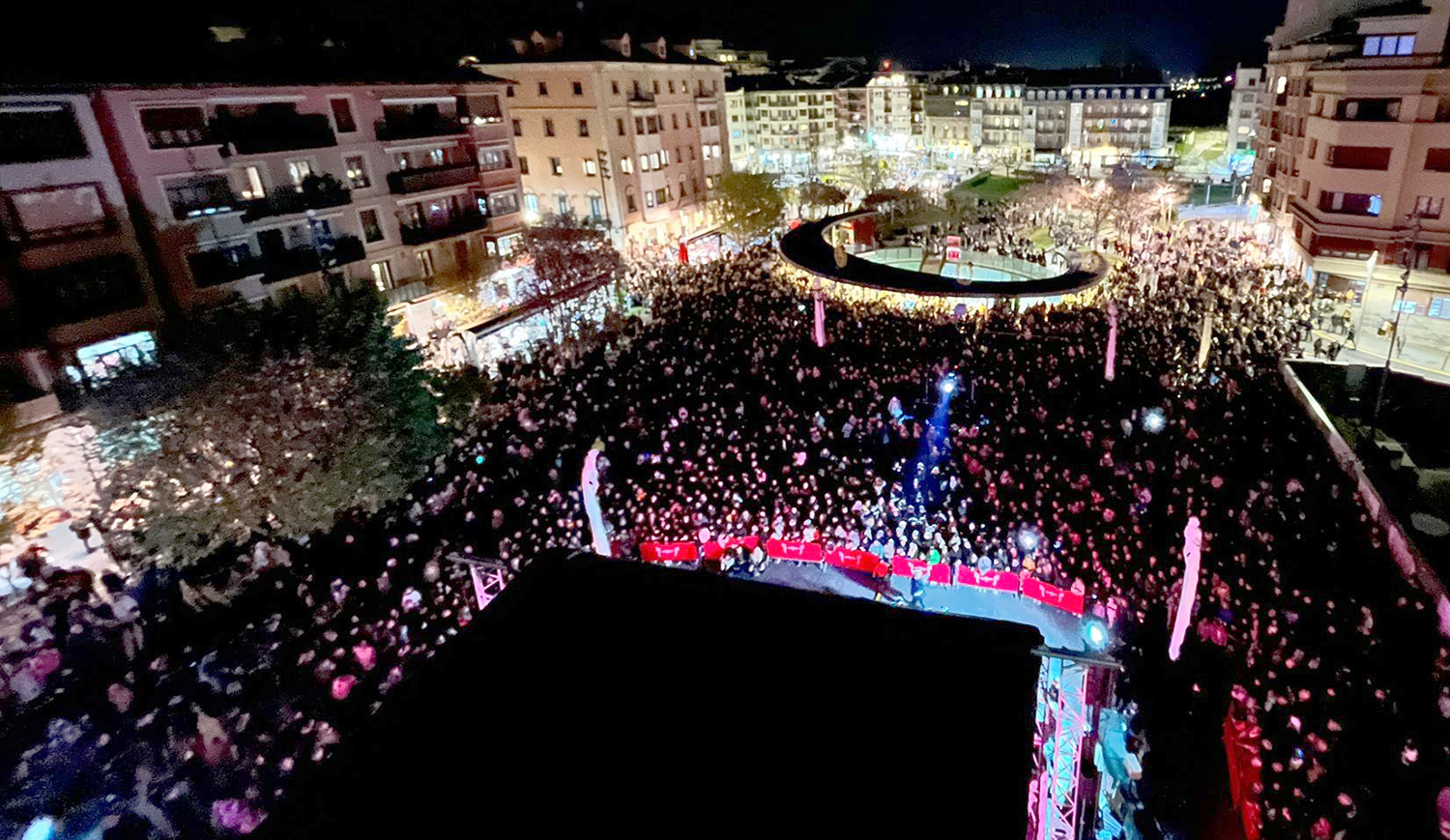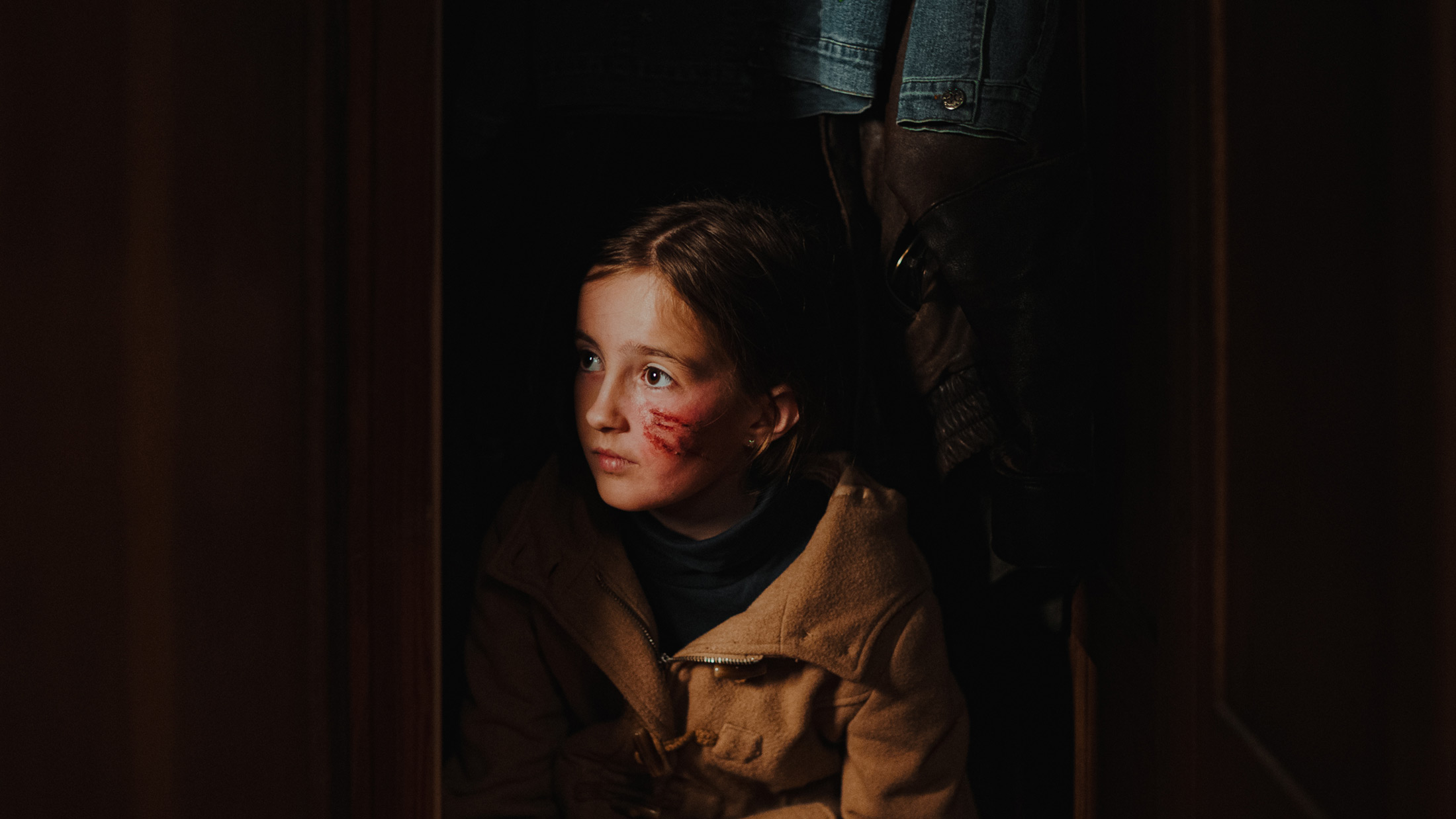Recent sokatira for an effective language policy
- The Basque Public Entity (EEP) will agree in early 2024 years language policy for the coming years. Among the results of the last socio-linguistic survey and the EEP forecasts for 2050, Basque society has a great alarm: it is not possible to continue with the existing work and resources, the Basque needs more. The Basque Confederation has addressed the mandate to the institutions: The French Basque Country needs a language policy that will lead to Basques reaching 30% by 2050. Today in Lapurdi, Nafarroa Beherea and Zuberoa 20.1% are Euskaldunes, violent diglosia, without official protection, but with a great will to live in Basque.
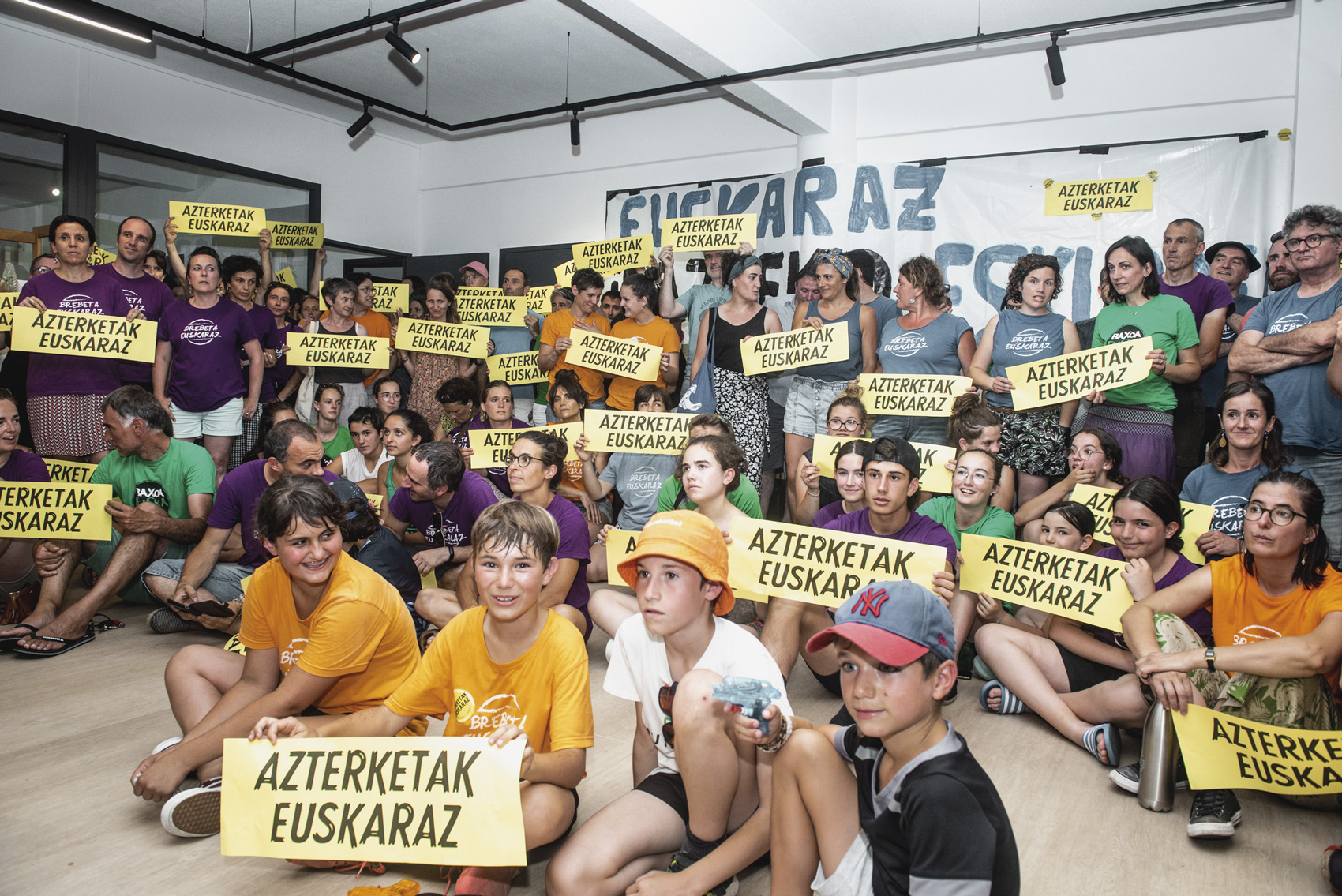
Euskalgintza is aware that the linguistic policy of the Northern Basque Country for the coming years is largely being played. The massive public interpellation of the Basque Confederation on 19 October – a press conference organized to demand a courageous policy that guarantees 30% of the Vasco-speakers by 2050 – both official and informal meetings have, at the end of the year, charged the social and institutional agents working for the Basque Country. In fact, every six years the Basque Public Institution assesses what has been done and the time has come. The EP will vote on the budget at the beginning of 2024, and it is clear that they are in line with the linguistic policy review, because what was agreed in 2006 has not been deeply repatriated since then.
The working document presented by EEP in September was presented by the Basque Confederation, which groups the cultural agents of the Basque Country into the mouth without hair: “The PSE does not propose a language policy that will safeguard the future of Euskera. Its only proposal is to continue as it has done so far.” Data from the latest socio-genetic surveys are worrying: 20.1% are Euskaldunes (24.7% in 2001) and it is obvious that this is an average, as in the urban area of Baiona-Biarritz Angelu, with one in three inhabitants of the Northern Basque Country, the number of Euskaldunes is 8.4%. In this imbalanced and diglosic Lingustic situation, the level of use of the Basque language is even more worrying: only 7.1% speak Basque as much or more than French (10% in 2001) and in Baiona-Angl-Biarritz they represent 1.9%.
How can we get out of this critical situation? The United Nations Organization (UNESCO) states that the minimum proportion of speakers a language needs to survive is 30 per cent. How to get there? How can we risk ourselves in a complicated context in which Article 2 of the French Constitution has been permanently handed over to us as a barrier? These questions have been discussed with various agents in the Basque sector: Elorri Arin, from the Konkolotx association, who is trying to develop the Basque childcare network; Maddi Bordagarai, from Udaleku, who proposes child leisure in Basque; Ihintz Oliden, from AEK, responsible for Euskaldunizar adults; Eneko Gorri, Irati Fernandez, vice-president.
.jpg)
“We want to call on the new PSE President to be courageous, to set courageous objectives and to set the right means for the State, the Region, the Department and the Basque Association of Urban Centres to establish. (...) It is not yet too late to reactivate the Basque country, if real political will is manifested. On the other hand, to keep up with the current pace and with current resources would be to condemn the Basque people to die in the medium term.” With this warning, the Basque Confederation ended its statement with the alarm of 19 October.
“The State, the Region, the Department and the College are in the PSE. Some members suspect that we are committed to Euskera”
Antton Kurutxarri
As for the institutions, in addition to the EP, the Basque School of Urban Helmets, which was established in 2017, also has a great responsibility in the linguistic policy of the Northern Basque Country. On June 23, 2018, he voted in the Plaza Euskara jalgi hadi language politics, knowing “officially” the Basque language and the gas field as languages of this territory – although symbolically the expression had its weight, it was not, however, a step to reclaim the “officiality” and therefore to disobey.
Increase targets to make you dare
“What ambition do we have for the Basque people? What vision do we have? It is up to us to set targets for the militants, because if we leave politicians we will not succeed. And if we don’t believe, because we will never achieve it,” says Gorri de la Plaza, when we talk about the 30% Basque goal set by 2050.
Because the existing language policy is not bold enough and effective enough. This accreditation is unanimous in the social activity of the Basque Country. Oliden from AEK says the EP approach is bad from the bottom: “They have a resource-friendly policy, but on the contrary, they have to work on language policy and then target resources accordingly.”
It had a budget of 5,257,046 euros for the year 2023, of which 1,330,000 euros correspond to the cultural agents of the Basque Country. Starting with the 2 million euros of budget generated in 2003, it has gradually increased, being the last in 2017 along with the creation of the Colegio Vasco de Cascos Urbano. An inadequate budget for an effective language policy and for the players who are betting on the Basque country to work with dignity. In December last year AEK denounced its precarious situation and in March the Udaleku took place. Every now and then, receiving an extraordinary check, they have been able to improve their financial situation and channel the wage increase of workers to guarantee the minimum wage required by collective agreements. But petachuelo is not a solution, because they have no medium-long term guarantees.
Moreover, economic insecurity makes the development that the Basque industry would need impossible: “We cannot respond to requests, we are blocked, we reject children,” says Bordagarai de Udaleku. In fact, the houses of the people should collect the leisure spaces, but nothing obliges them to do so. To illustrate the seriousness of the situation, it should be noted that the expenditure is calculated per child/day and that Udaleku would need a minimum of EUR 25 per child/day – the OPE recommends asking EUR 32 to the houses of the people – but at present only some say that (Ziburu, Uztaritze..), that of others is lower, being insignificant for some (Hendegunea, let). In this sense, they are economically incorrect and, despite the question, cannot guarantee all those interested in Basque leisure. For example, they have about 260 places for the summer stay, compared to 500 requests.
In the same situation there is the Konkolotx structure, in which the nursery or the children's house cannot attend to all those who wish to attend only in Basque. For example, this year they had to refuse the application of 25 families in the Ohakoa nursery in Biarritz. “I started working without knowing if my post is going to be subsidized,” says Konkolotxe’s coordinator. And the same goes for the four workers in the Plaza. Both have a collection to be able to move forward thanks to citizen protection.
The Basque cultural agents know that this is not just about money and that it is based on political will. “In the end, the problem is political: What people do we want? What are the priorities? In words we are, in nice words we are, but words are not enough and what has been given today is not acceptable,” says Bordagarai. “Language policy is always in competition with other policies, they always have some justifications for not going further. That is not enough ambition. (...) We have won the battle of ideas and now we have to move from one side to another. They can demonstrate at the current negotiating stage that they want to leave,” says Gorri, underlining the importance of political will.
“We have won the battle of ideas and now we have to move from one side to the other. Now they can demonstrate their willingness to leave”
Eneko Gorri
We have also talked to Kurutxarri, a member of EEP. He is a left-wing nationalist, Basque and before being elected he already existed in the field of Basque culture and culture, among them the Basaizea association, organizer of the Day of Navarra. You have been President of the PSE in the last three years and when you ask the assessment of this period, the journalist: “It’s a very tired job – I don’t mean my person, I mean OPE – Ipar Euskal Herria is a ttipi, we all know each other and people expect contradictory things. Within the institution we have to justify and measure everything that has to be to conduct public policy, the institutions have a rigorous look, which in principle is a good thing. It is a policy agreed between the four members, Colegio Urbano Vasco, Estado, Comarca and Departamento, and some of them suspect that the CEP is highly committed in favor of the Basque Country. But at the same time we have enormous pressure from the Basque industry, we hear that we are not doing enough, and that is also normal in one way. So, we are between the two sides, it is very hard, we have criticism from both sides, we are always criticized”. Please note: “The EEP is an interesting tool, but it should not be broken, it should not be broken quickly...” It adds to the position of having to ask the institutions more, because until now the Basque “would have a weaker and lower place than ever in the next decades”.
Structure for the Basque Country, but for France...
Composition of the EP does not facilitate an effective and bold language policy. Because in the end it is necessary to reach an agreement with the French Ministries of Education, Interior and Culture, as well as with the Region and the Department that do not have Euskera as a priority. In the end, the political will depends on the political composition, and that is surely the reason for the bad language policy, which from the French and French points of view is reasonable and sufficient. From within it is not easy to cooperate and to establish a policy and a budget that the four members consider acceptable. In essence, in 2017 the agents of the Basque Confederation left the Advisory Council to respond to the “lack of will and ambition” of these members. Since then, they have not been reintegrated, although parallel relations are maintained.
On 16 December, the Basque Confederation held the days to reflect in a group on the linguistic policy needed to achieve the 2050 goal. At the end of the day they read the manifesto to challenge the institutions.
The Basque 30% would be possible if...
Respondents were asked what should be changed, developed and created by 2050 the number of Euskaldunes in Iparralde instead of 17% to 30%. The document submitted by the PSE to the Euskaldunes states that promoting the use of the language should be one of the main objectives of the following decades: “Currently, the use of Euskera is largely based on the individual motivation of the speakers and not on the normalization, development and diversification of spaces and opportunities for the use of Euskera. Increasing use is therefore the great challenge of language policy for the next decade. The keys are the will and capacity of all institutions, exercising all their competences (children, youth, culture, sport, economic development, media, cultural production, etc.). as development of language policy, coordinating its actions with each other and with the PSE”.
All Basque cultural agents share this need. That is why an offer such as Udaleku is essential, or the work of Argia, which seeks to develop the presence of Euskera in the socio-professional areas. Because whoever wants to live in Basque needs insufficiencies to use it.
The linguistic landscape of the Northern Basque Country is so French that children who come to Biarritz to receive their free time in Basque do not have the habit or the level of use of the Basque country – obviously, with exceptions, the situation in Biarritz is not the Sea, let us say. This problem also occurs in the school environment, in the bilingual section French predominates in the school patio and the ikastolas do not live outside this reality either.
“The Basque level is very low, the level of activities is very low. (...) But that doesn't worry me anymore, because our relationship with language can move a lifetime. I am concerned about the scarce resources of the Basque country. We are breathing spaces for the Basque people and we have a knife under the throat.”
Arine de Konkolotxe considers it essential to develop a immersion system in the 0-3 years. That is why they have sent a letter to the houses of Lapurdi, Baja Navarra and Zuberoa, proposing help to create a nursery or nursery entirely in Basque. Currently, only three childcare centers and five babysitters care for children only in Euskera (and those who besides French also have Euskera are about 33%, tangled under the label Leha). Showing interest, some new ones should be added: Irulegi, Aiherra, Lehuntze, Bidarrai... “It is not that children enter the Basque country, we introduce them into the Basque culture, in a world, they have the Basque from their roots.” In addition, parents usually integrate them into the ikastola or bilingual teaching, and Arin knows what the result is: “The teachers tell us that although the child is in a French family, he understands the Basque.” Besides developing the bilingual, in order to promote the immersion model, the Colegio Urbano Vasco dedicates 7,400 euros for each of the open spaces.
“We are a respiratory zone for
the Basque Country, but we have a knife under the throat”
Maddi Bordagarai
In the end, as some of the interviewees have warned, the Basque industry is an “ecosystem”: a complete whole of agents that complement and feed each other. Anyone who wants to learn Basque, AEK, will need media in Basque, will need free time in Basque, will need an Basque professional environment and a child in ikastola will need activities exclusively in Basque, supports to develop the imagination from the Basque...That is why they fight collectively, because they know that the achievement of Ipar Euskal Herria is available among all.
And that's why you can't see the creation of a new agent as an obstacle. “If a new agent has arrived in Euskalgintza we act among ourselves as the cannibals and that is not normal, because we all settle,” says Gorri. But as the budget for language policy is insufficient, and has not increased since 2017, everyone is concerned about their own, so the precarious will become even more precarious. Because the cake is unique and if the pasta doesn't heal, the separate portion of each will be smaller. Let us not forget that cooperation is the maxim and that everyone is united within the Basque Confederation. Suppose that in recent years Konkolotx, Plazara and Euskaltzaleen Topagunea have flourished in Ipar Euskal Herria with new challenges, ideas and forces. In this respect, the increase in the budget is important, as the needs are increasing, both for the citizens and for the actors.
Teaching in Basque: significant development
“Increasing the number of entire speakers” was the priority of the language policy agreed in 2006, “betting on young generations”. The numbers clearly show the development of Basque education: in the first year it has increased from 42% to 70% of Basque education in the last twenty years, and at present 42.1% of children receive bilingual education.
.jpeg)
Besides knowing the development of the ikastolas – the 2023-2024 course has started with 39 Seaska ikastolas, opening the fifth Kattalin Elizalde school in Senper-, the immersion model has developed rapidly in private and public maternal schools: ten were private schools twenty years ago and 44 (24 public and 20 private).
However, at school and high school, the data are not so high: 23.6% continue in the immersion or bilingual model at the end of the liceo (within Seaska 44% of those who will continue in the ikastola until the last year of the liceo). The excessively low Basque levels are one of the main causes of students dropping out of the bilingual department, according to a study conducted by the EEP in 2013.
When assessing the PSE, Kurutxarri highlights the progress made in the educational field: in general, the development of teaching in Euskera, and in recent years, the possibility of offering the public school immersion system and the right to pass the Breb in Euskera among its achievements. “They have been collective victories, carried out by the Basque industry, with elected officials and with EEP.” He says that the French Ministry of Education "wastes a lot of energy", but that little by little progress is achieved thanks to a small job: “The immersion model was a painful topic, but now it is not discussed anymore, the pedagogical groups are in it.”
However, he is asked about the continuing barriers that come from Paris and finds it difficult to clarify the logic of the parallel: “I find it hard to understand, not even legally have quick answers on par, and they accept what we say. But there are habits and attitudes that don't change... The issue of local languages is very far from you, I am certainly not a subject for that great machinery. There is also mistrust, the wild boobinism of all times; I don’t think language is the end to disappear, but mistrust, in case they prefer to hinder.”
If we are to achieve the objective of doubling the number of Euskaldunes by 2050, we must continue to give strength in the field of education: to develop bilingual, quantitatively and qualitatively, to promote continuity to high school and to multiply the immersion model.
In addition, the interviewees stress that adult Euskaldunization will have to be developed. Knowing that 3,000 immigrants, mainly French, come to live in France every year, the forecasts are that the capacities and channels of Euskaldunisation will have to be multiplied. Currently, Aek has 1,600 students distributed in 22 locations. “They are learning, but they have to be able to practice in the street... we have to encourage use. We have a mill and we need to dance all the areas so that the Basques reach 30 percent. In all fields we need to make the Basque language useful, visible and known. Today we are not like that.”
In a context in which, without official status, it is not in the institutional priorities and Article 2 of the French Constitution is a constant obstacle, the offer that should, in principle, be part of the public service should be developed from Basque social activity. But to do so, the institutions must allocate resources to multiply Euskaldunization and the use of Euskera. Because illusions, dreams, new ideas and the project are not rare.
However, even despite the French Constitution, it believes that the institutions can do more: “The services of the houses of the people can integrate the Basque Country actively”, according to Bordagarai; and the Basque School of Urban Helmets can also include more Basque in their daily lives. In other words, even if the struggle for official status has not been carried out, there are still many places to be able to go to the Basque country. But that requires political will. And a bit of bravery, because the Jacobin wind is still blowing fast.
Gabonetako argiak pizteko ekitaldia espainolez egin izanak, Irungo euskaldunak haserretzeaz harago, Aski Da! mugimendua abiatu zuen: herriko 40 elkarteren indarrak batuta, Irungo udal gobernuarekin bildu dira orain, alkatea eta Euskara zinegotzia tarteko, herriko eragileak... [+]









